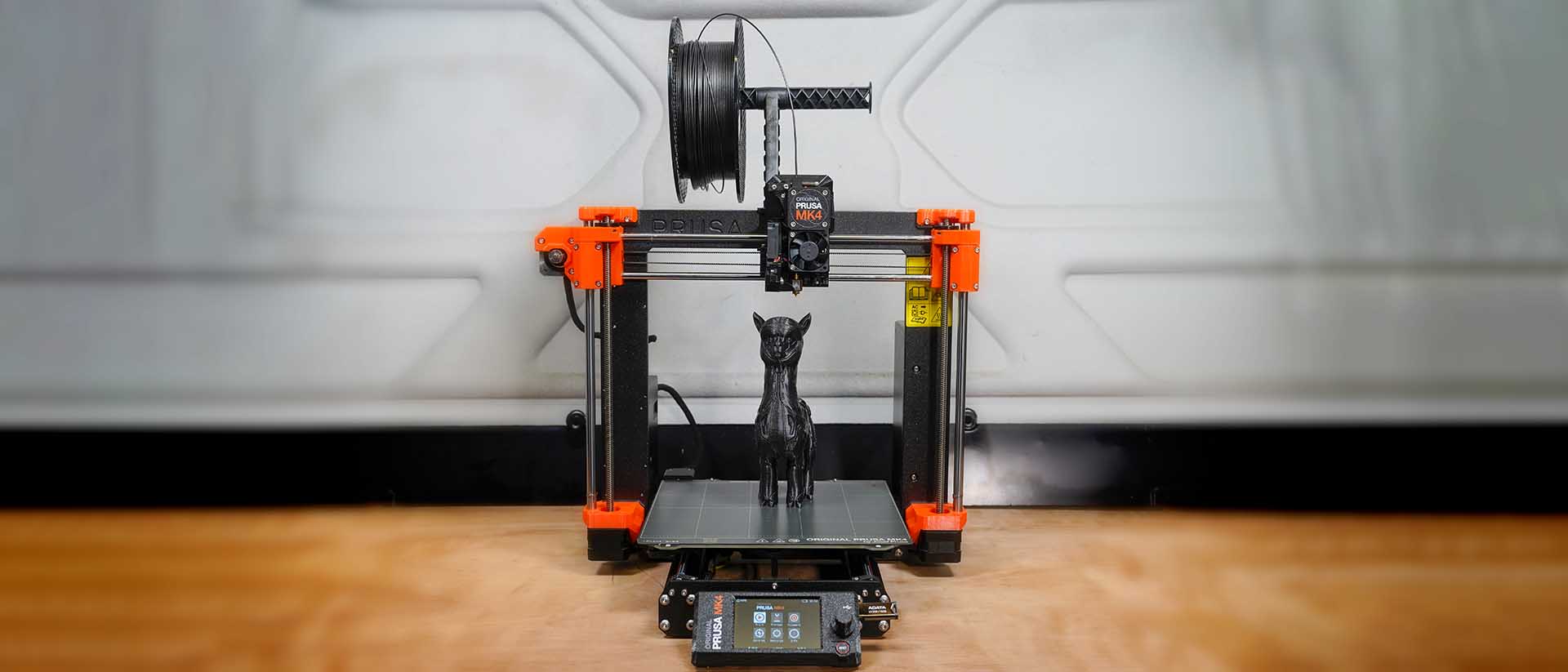TechRadar Verdict
The Original Prusa MK4 is an outstanding 3D printer from a company whose heart remains strongly aligned with the Open Source community. Expectations for the MK4 have been high across the 3D printing world, and innovations such as automatic first-layer leveling and speed enhancements live up to those expectations. The machine is also easy to set up and maintain, arriving almost ready to go and requiring little adjustment before the first run, making it a great choice for enthusiasts and professionals. However, the price tag may put beginners off. The MK4's support for a wide range of materials and the built-in advanced safety features make it ideal for hobbyists, manufacturing, education, architecture, and anyone needing a reliable and high-quality 3D printer. The Original Prusa MK4 is an excellent 3D printer that produces top-quality prints and sets a benchmark for all other 3D printers to follow.
Pros
- +
Reliable and efficient
- +
Versatile and customizable
- +
Easy to use
Cons
- -
Pricey for beginners
Why you can trust TechRadar
The Original Prusa MK4 is the latest iteration of the popular open-source 3D printer workhorse manufactured by Prusa Research. The MK4 provides high-speed 3D printing with ease and is incredibly reliable, much like its predecessors. However, the MK4 adds many new features that make it stand out, both from its predecessors and competitors in the market.
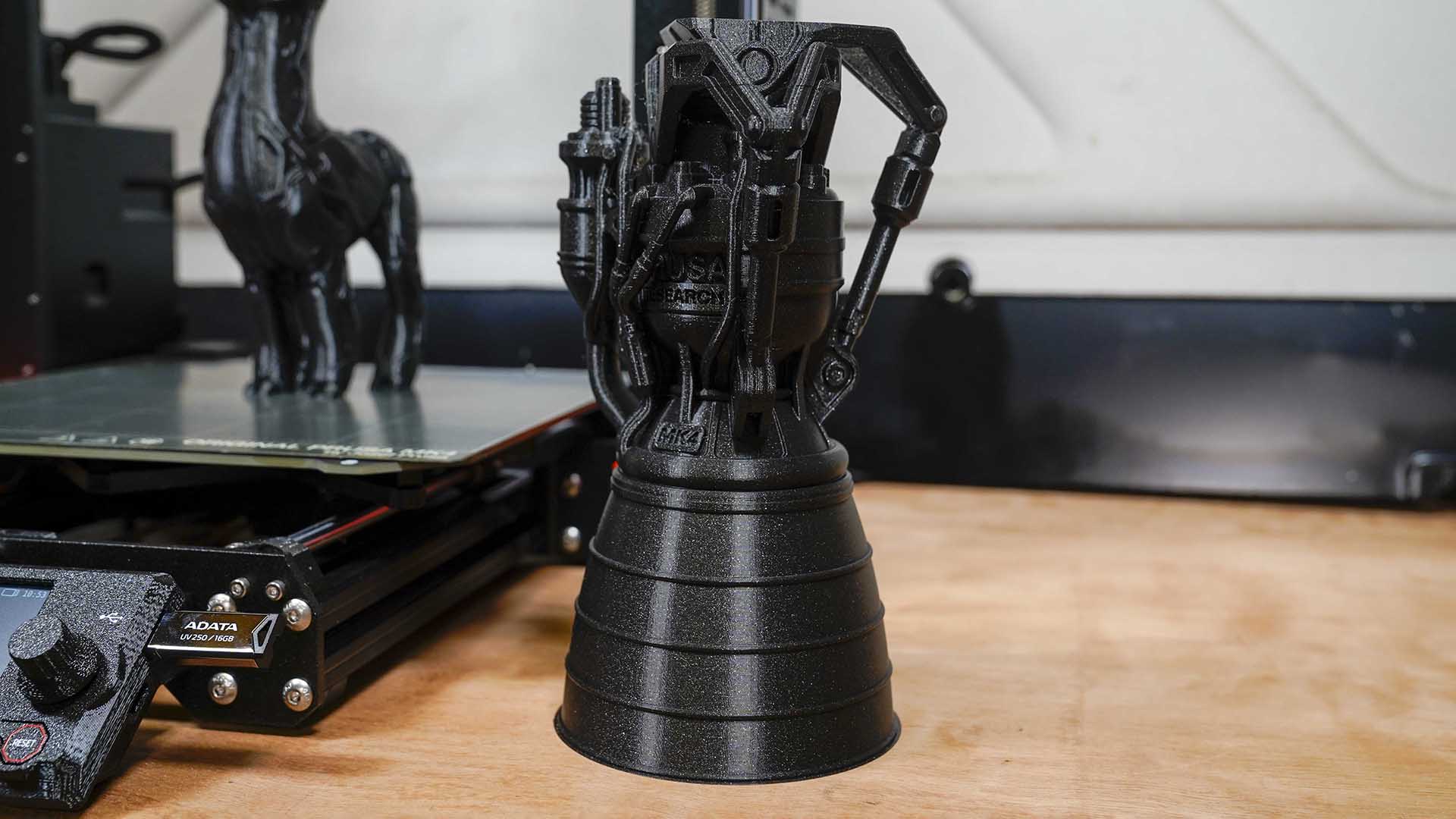
One of the most exciting features of the MK4 is the Loadcell sensor that allows the printer to lay down a smooth and consistent first layer automatically without any user input. It also has a next-gen extruder (Nextruder) and a 32-bit connected platform that enables many new features and future expandability.
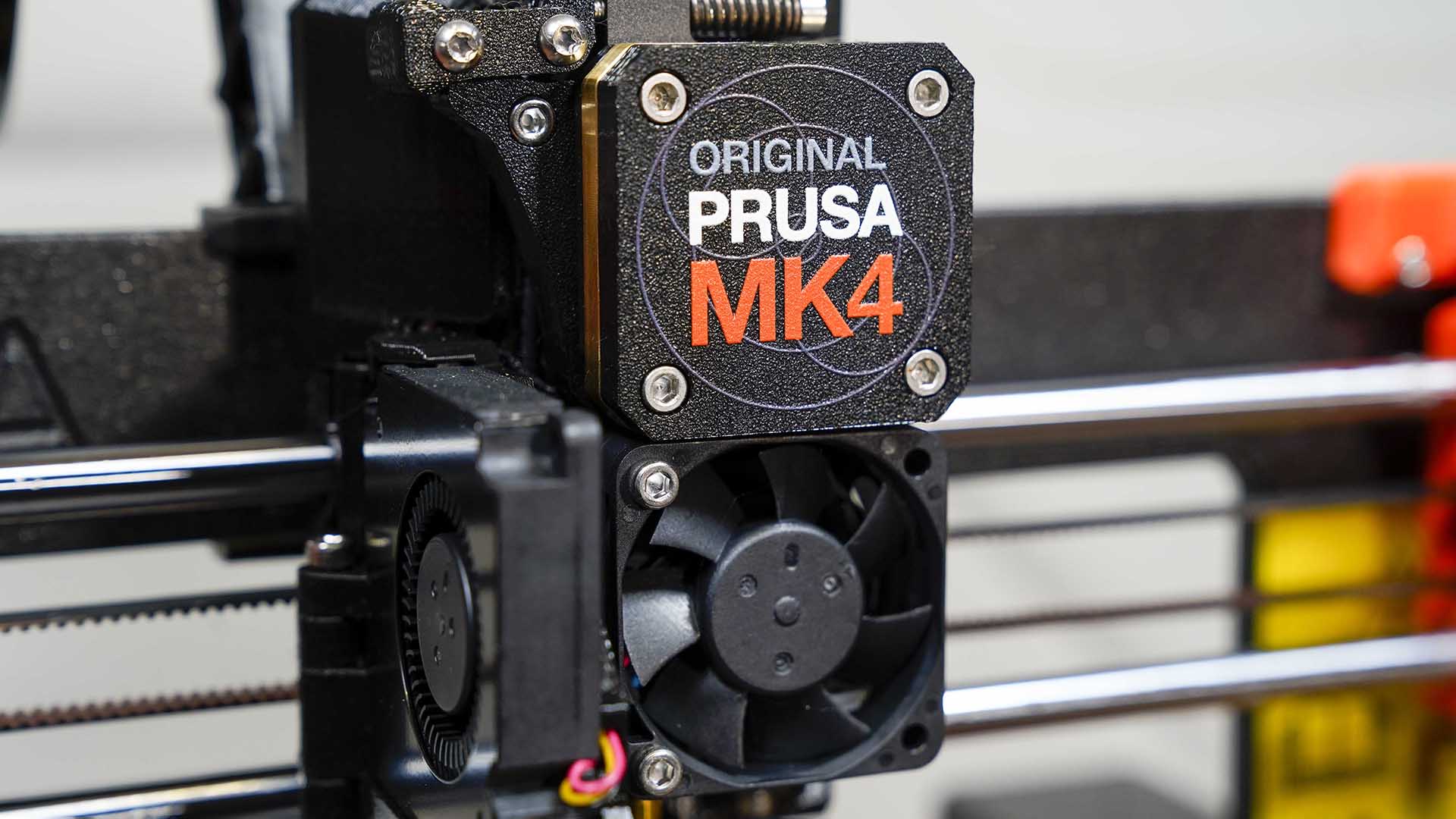
The MK4's firmware also includes the implementation of Input Shaper and Pressure Advance technologies, allowing the printer to eliminate resonance in prints and predict the flow of the filament. This results in a significant decrease in print time by up to 70% compared to the previous MK3 model, although these features have yet to be rolled out.
The MK4's compatibility with various materials, including PLA, PETG, Flex, Nylon, ASA, PVA, PC, PP, composites, and more, makes it an excellent choice for households, hobbies, manufacturing, education, architecture, and design applications. Being open source, there's also the ability to adapt the machine to your needs which sets it apart from all other 3D printers.
Design and Features
The Original Prusa MK4 is the successor to the award-winning MK3 and has been highly anticipated in the 3D printing community. This machine is designed to deliver high-speed 3D printing with ease while maintaining reliability and safety features.
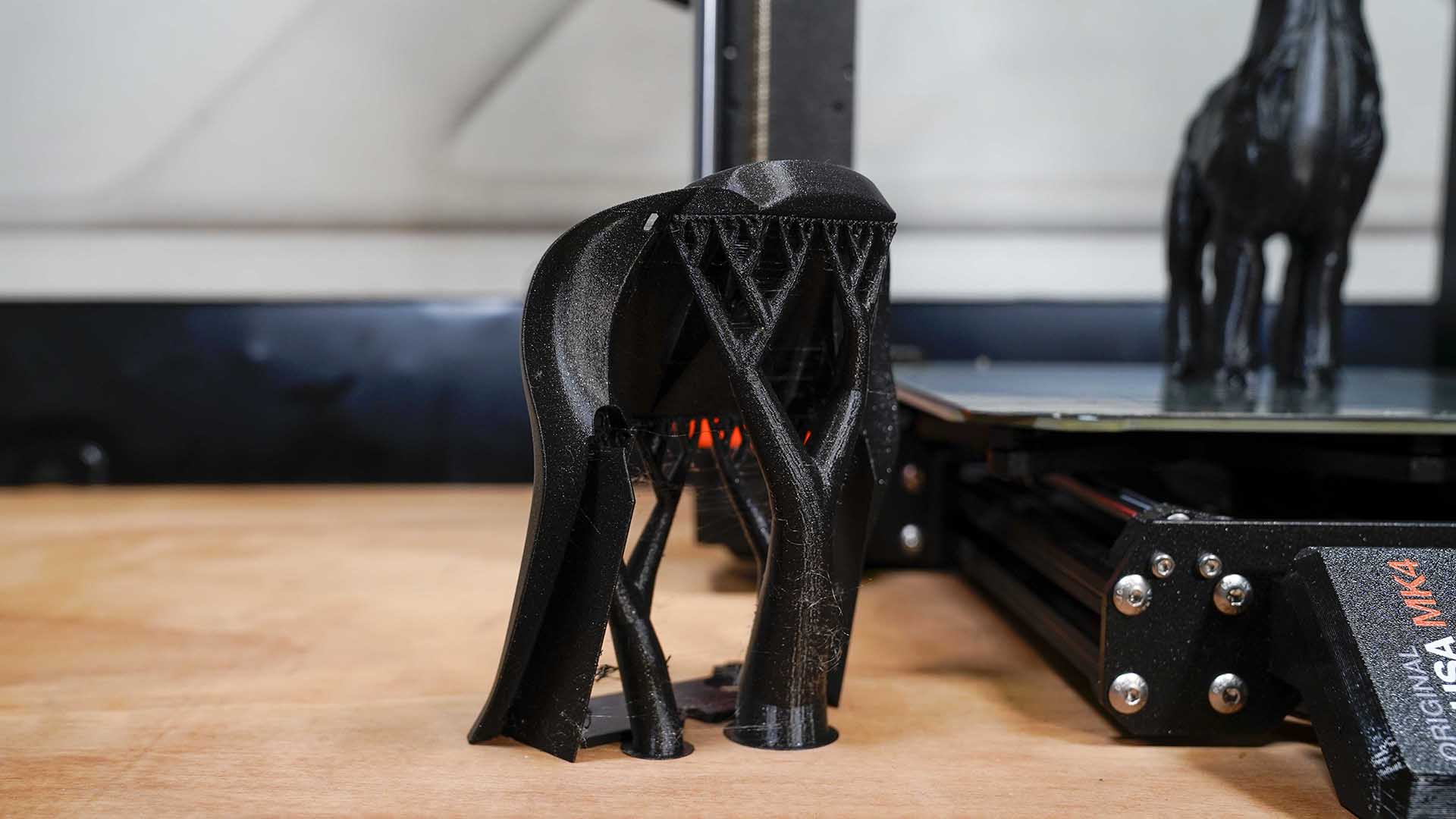
The MK4 has a build volume of 250 x 210 x 220 mm and uses a 1.75 mm diameter filament. It has a minimum layer resolution of 0.05 mm and a maximum layer resolution of 0.30 mm. The printer has a custom 32-bit xBuddy mainboard with STM32 and Trinamic 2130 stepper drivers.
One of the most exciting features of the MK4 is the Loadcell sensor, which provides automatic bed leveling, eliminating the need for manual adjustments. You quite literally take it out of the box, plug it in, load the filament, and go off. The printer also has a next-generation extruder, called the Nextruder, which is E3D V6 compatible with an adapter. The filament path through the tool head features an all-metal hotend and aluminum heatsink with no PTFE tube, which all help add to the reliability.
Sign up to the TechRadar Pro newsletter to get all the top news, opinion, features and guidance your business needs to succeed!
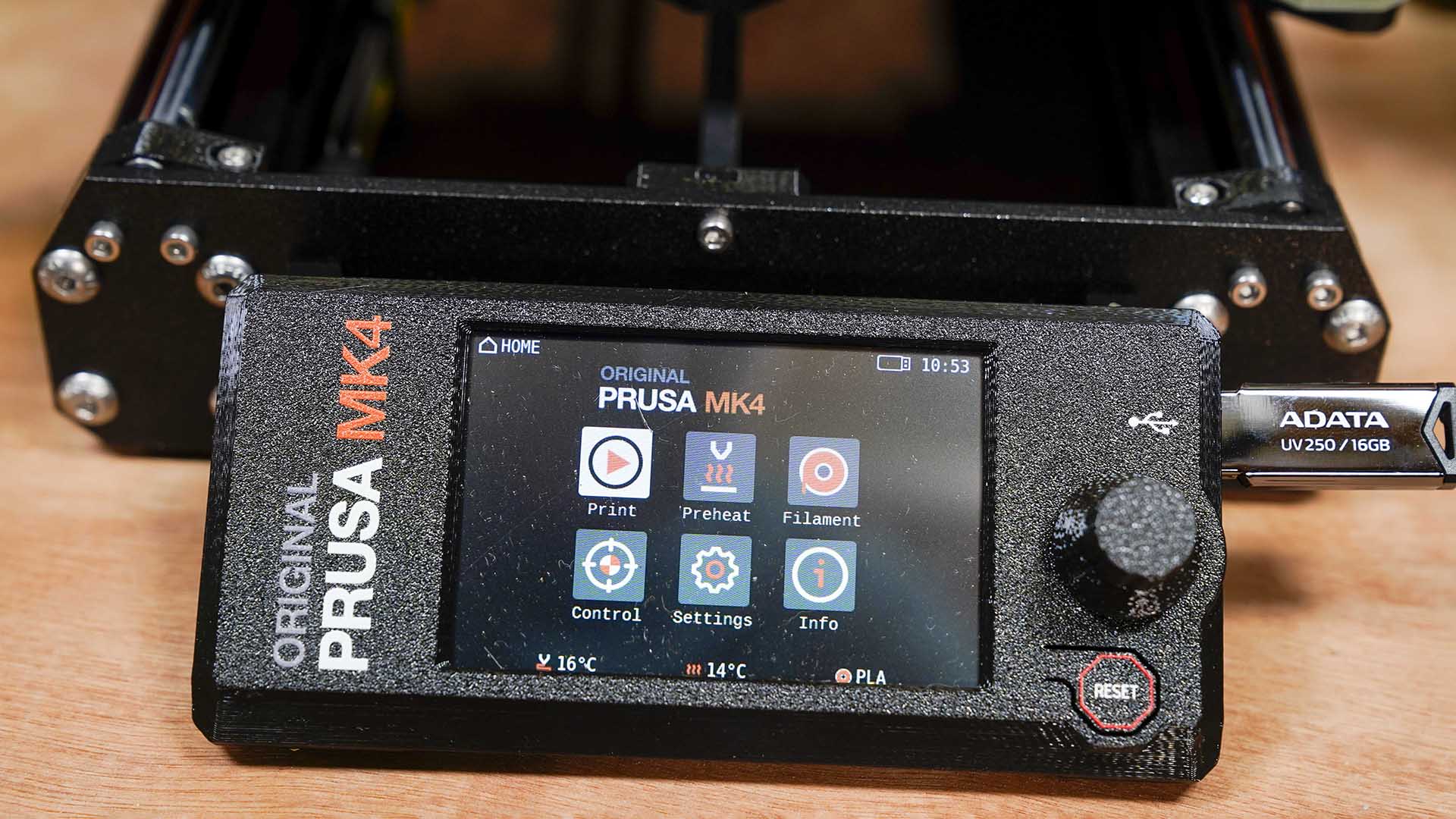
Print Technology: Fused Deposition Modeling (FDM)
Build Area: 250 x 210 x 220 mm | 9.84 x 8.3 x 8.6 in
Minimum Layer Resolution: 0.05 mm
Maximum Layer Resolution: 0.30 mm
Dimensions: 500×550×400 mm; 19.6×21.6×15.7 in (X×Y×Z)
Weight: 7 kg
Bed: Magnetic heatbed with removable PEI spring steel sheets
Print Surface: Smooth PEI print sheet
Software: PrusaSlicer (open-source), PrusaControl, PrusaConnect
Materials: PLA, PETG, ABS, ASA, Flex, HIPS, PA, PVA, PC, PP, CPE, PVB, NGEN, composites, and more
Print Speed: Up to 200 mm/s
Other impressive features include support for high-speed printing with Input Shaper and Pressure Advance technologies, to be released soon in a firmware update, a color LCD screen with a customizable UI, and quick access to important functions. There are also advanced sensors such as a filament sensor, Loadcell sensor, power panic, and 4 high-precision thermistors for accurate temperature readings. Some of these are just nice features, but if you're using the printer professionally, the feedback these sensors give can be invaluable.
The MK4 also has many connectivity options, including LAN and an optional ESP Wi-Fi module, and is compatible with USB drives, LAN, and internet via Prusa Connect. It has a magnetic heatbed with removable PEI spring steel sheets and supports a variety of materials, including PLA, PETG, ABS, ASA, Flex, HIPS, PA, PVA, PC, PP, CPE, PVB, NGEN, composites, and more.
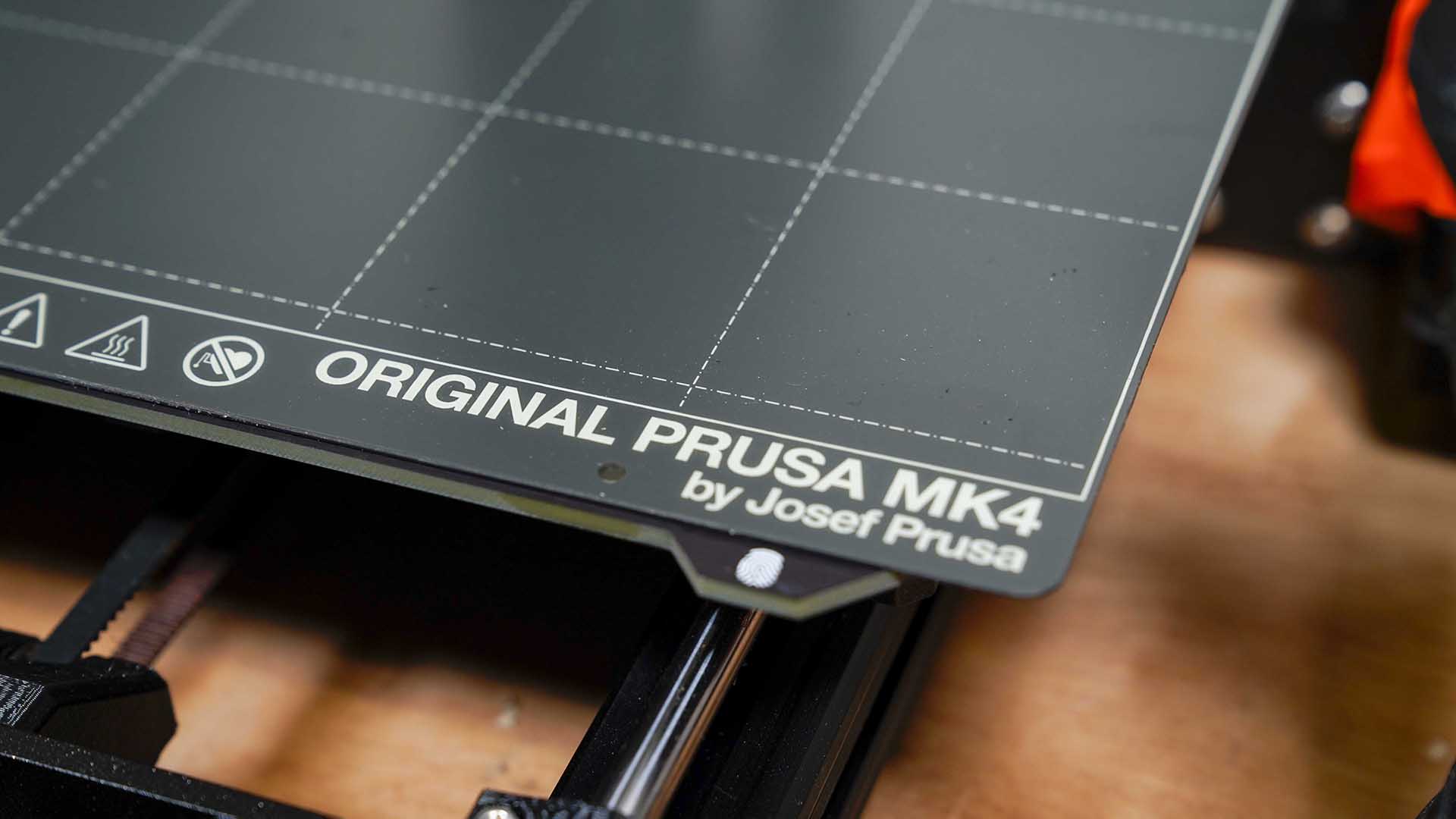
Additionally, the MK4 can be upgraded with an optional MMU3 for multi-color printing and is fully compatible with the Original Prusa Enclosure if you want the best quality ABs, Nylon, and specialist material prints.
Performance
The Original Prusa MK4 3D printer sets a new benchmark for performance, with exceptional print quality that surpasses many other machines on the market. The print quality test results from the Autodesk Kickstarter 3D print quality test showed the MK4 scoring an impressive 26.5 out of 30, with particularly strong scores in dimensional accuracy, fine negative features, overhangs, and bridging.
The MK4's precise and reliable performance is due to those advanced features, especially the Trinamic 2130 stepper drivers and precise 0.9° X, Y stepper motors. The extruder is a Nextruder direct drive system with a 10:1 gearbox ratio that ensures accurate filament control and prevents filament jamming or skipping. Through the test, the print reliability was spot on, with only one failing to print due to the filament reel getting tangled.
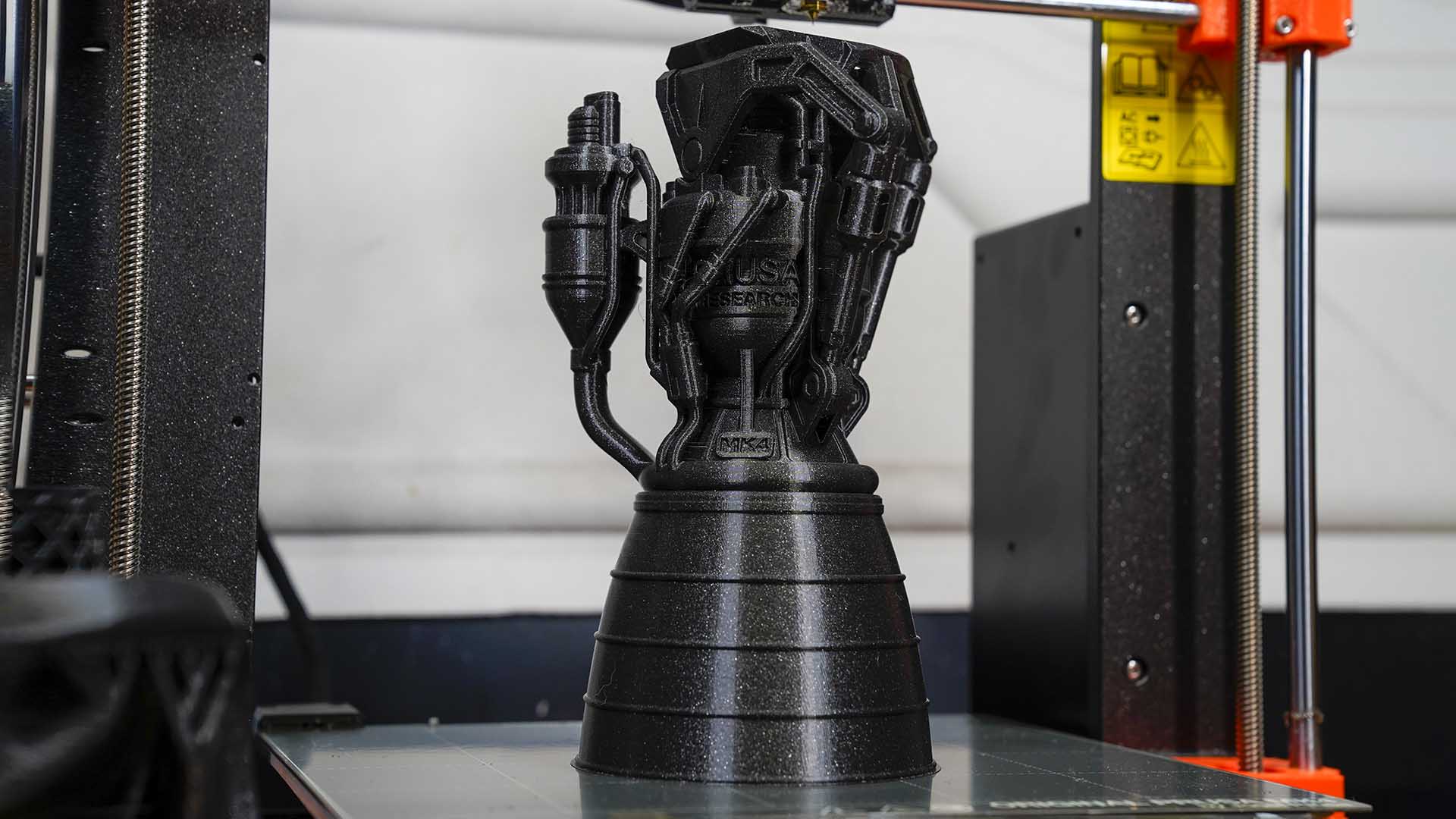
The MK4's automatic mesh bed leveling system seems to do the job in the background, and certainly, through the test, it appeared to provide a consistent printing surface compensating for any irregularities in the print platform. Additionally, the thermistors and advanced sensors kept tabs on the temperature and material control, which is highlighted with the quality of the outer surface of the models, which are smooth with little signs of the usual layering.
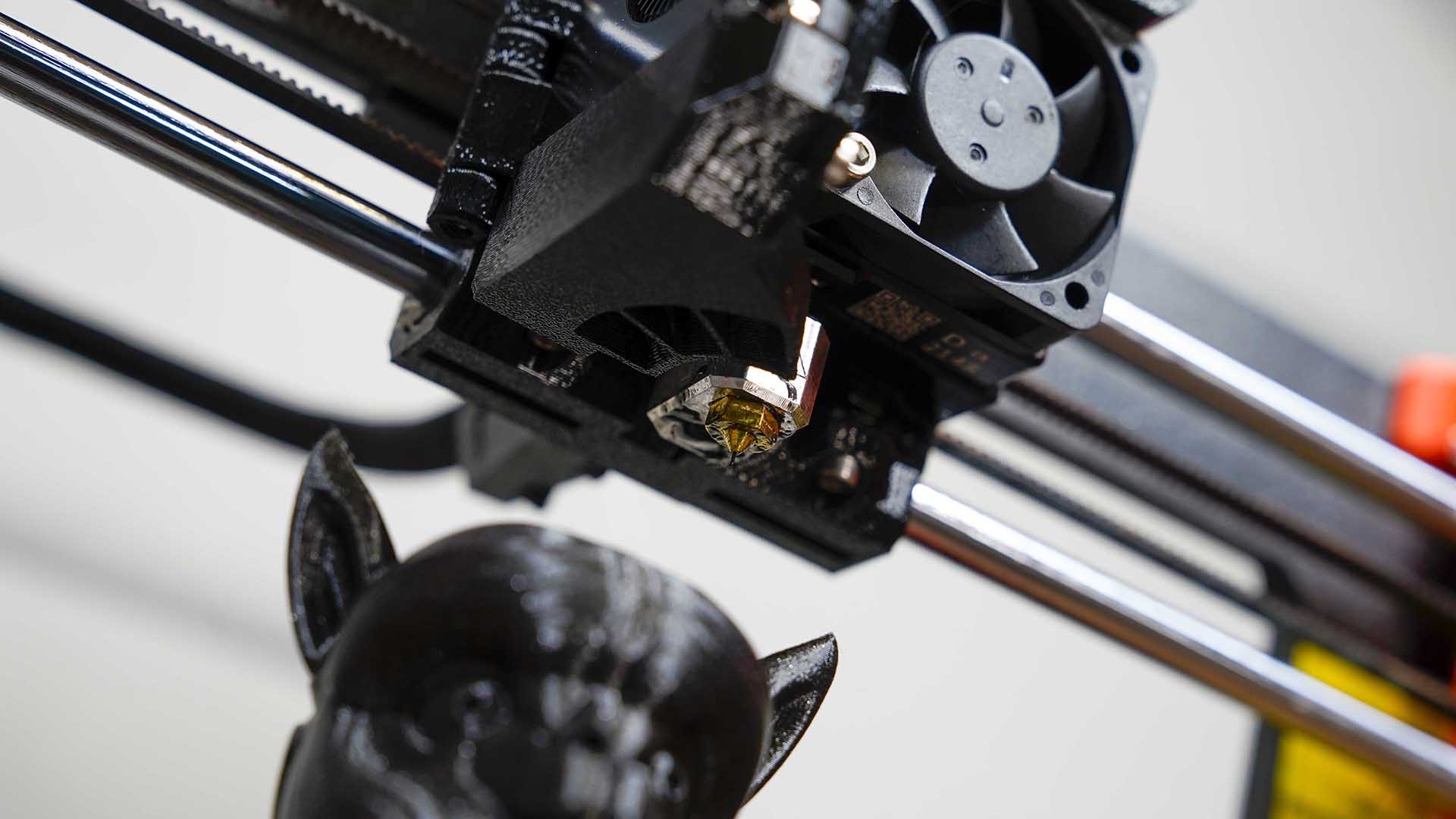
One of the big features of the MK4 is the fast print speed, which has yet to be fully unlocked. Even so, print times are still impressive at the present configuration, with fast, accurate prints being produced with a high success rate at all quality settings.
The Original Prusa MK4 3D printer establishes itself instantly as a high-performance machine that sets a new print quality and reliability benchmark. The advanced features, such as that automatic bed leveling and the first layer, perform solidly, getting the results you hope for.
Ultimately there is little to fault with the speed and quality of the machine. The tweaks made to the design have had the desired effect, and the fact that this is all Open Source means that if you invest in this machine, it will continue to grow and expand on its features.
Print Quality
Dimensional accuracy - score of 5
Target 25 = X: 24.82mm / 0.18mm Error | Y: 24.99mm / 0.01mm Error
Target 20 = X: 19.87mm / 0.13mm Error | Y: 20.03mm / 0.03mm Error
Target 15 = X: 14.86mm / 0.14mm Error | Y: 14.90mm / 0.1mm Error
Target 10 = X: 9.98mm / 0.02mm Error | Y: 9.96mm / 0.04mm Error
Target 5 = X: 4.95mm / 0.05mm Error | Y: 4.78mm / 0.22mm Error
X Error Average = 0.10
Y Error Average = 0.06
X&Y Error Average = 0.08
Fine Flow Control - score of 2.5
Fine Negative Features - score of 5
Overhangs - score of 4
Bridging - score of 5
XY resonance - score of 2.5
Z-axis alignment - score of 2.5
Adding up the totals gives a final score of 26.5 out of 30.
Verdict
The Original Prusa MK4 3D printer sets a new benchmark for performance, with exceptional print quality that surpasses many other machines on the market.
From the outset, the machine impresses with near out-of-the-box readiness to print. Just plug in, and within minutes the tool head is well underway to creating our first 3D model.
Ease of use has taken a step forward with the inclusion of filament autoloading as soon the end of the material is placed into the top of the extruder. Then once a print is selected, and with no other fine-tuning required, the tool head fires into action laying down a perfect first layer every time. No human intervention is needed to ensure that the first and every successive layer is correct.
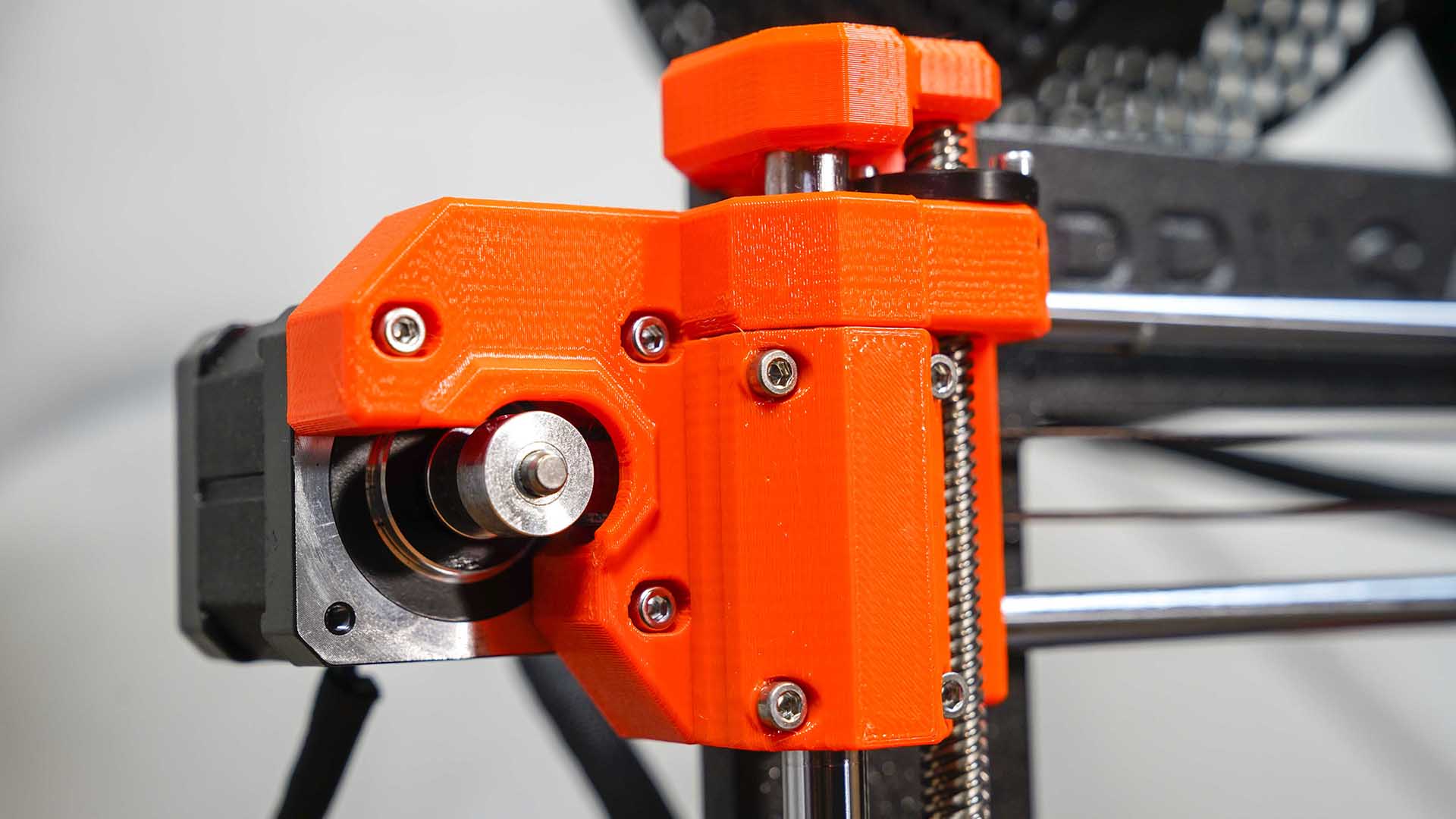
The issue with a machine like the Original Prusa MK4 is that there are a few things that you can fault with the performance. If there were holes to pick, then it would have to be that this is still a single filament machine with no enclosure, but both options are available as optional extras. Looking closer at the features, it would be nice to feature a touchscreen interface rather than a control board style, but no doubt this will be upgraded or changed soon.
More critically, the Nextruder is a nice feature, but it isn't as quick to swap as other options, such as those from Ultimaker and SnapMaker. Then there's the model preview on the small screen. This uses the model as a gauge of the amount of time the model has been printed rather than a real depiction of how much of the print has been printed. All these things are small, which is also the beauty of the system and the close ties to the open-source community. If there's something you want to be developed, design it yourself or call out to the community, and someone out there will help you develop your ideas.
The Original Prusa MK4 3D printer is a high-performance machine that sets a new print quality and reliability benchmark. Its advanced features, automatic bed leveling, and compatibility with various materials make it a versatile and powerful tool for various applications. With its impressive speed, accuracy, and ease of use, the MK4 is an ideal choice for professionals and hobbyists who demand the highest quality and reliability from their 3D printers.
Alastair is a photographer, filmmaker and tech writer who has been working in the publishing industry since the late 1990s. For more than 25 years he has covered photography, video and technology across Future's photography, technology and gaming brands. He runs a photography and video production company and lectures in TV and film. He can usually be found testing mini PCs or prototyping and prop building with the aid of 3D printing.
